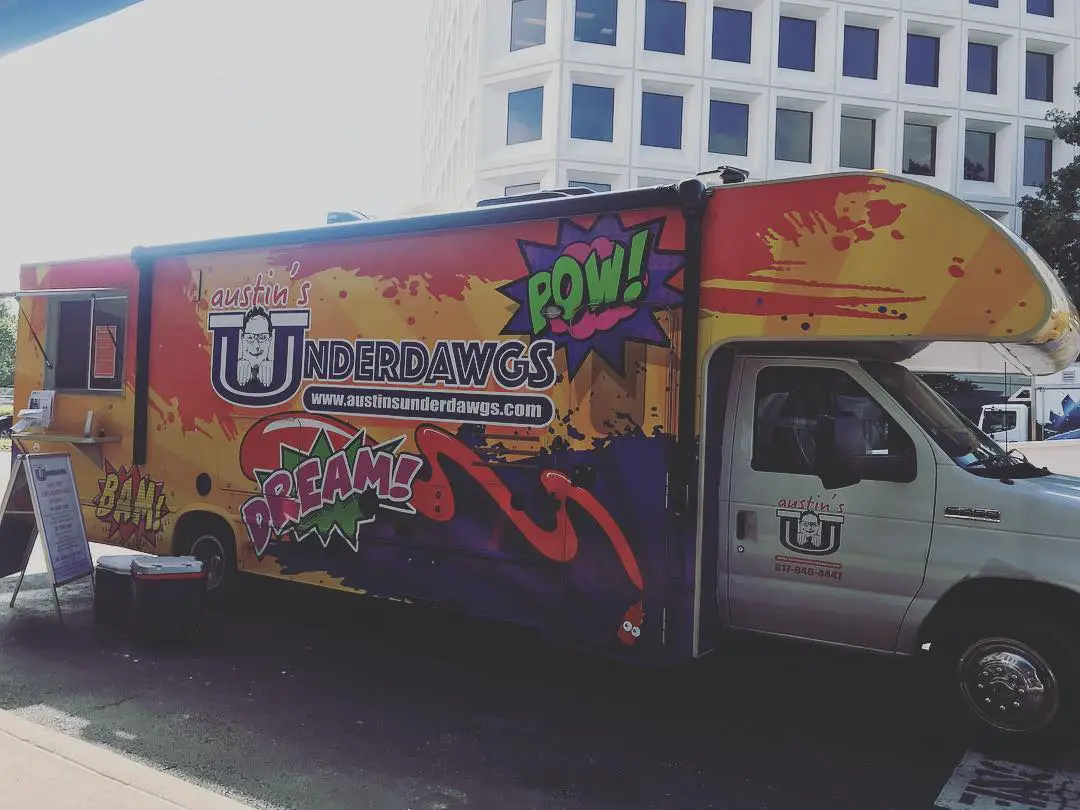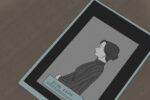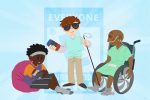Everyone knows the stress of job hunting, but trying to find a job with physical, mental or social challenges makes that endeavor even more difficult. Let’s face it, there’s still a stigma present surrounding people living with a disability.
Unemployment is high among workers with disabilities, according to the National Institute of Health. Even though it’s illegal, a lot of companies discriminate against those with disabilities and assume they will be a liability. When workers do find a job, they’re faced with a lot of difficult situations due to a lack of accommodations and awareness, making it hard to stay employed.
But just because people who struggle with physical illnesses, mental illnesses or other health challenges have a harder time finding or keeping employment, doesn’t mean employment isn’t an option.
What’s the solution? Awareness and accommodations are a must, and discrimination needs to stop. Right now, the solution is finding where you thrive, and business ownership is the answer for some people with a disability/disabilities.
Beginning a business is no easy task, and it’s not always the answer for even the healthiest of people, but the benefits of being able to create your own accommodations and a schedule to work around your needs has led to many entrepreneurial success stories for people with disabilities.
Here is a list of 4 businesses started by people living with a disability.
Austin’s Underdawgs
Austin Underwood has always had a passion for food, and he always wanted to be a chef. Underwood has Down syndrome, a genetic condition that leads to an extra chromosome, which can cause physical and developmental challenges, so he enrolled in a special services vocational program at Eastern New Mexico University when he was 21 years old. He worked in the university cafeteria, but he wasn’t a contender for the chef position because he was never taught how to read.
But Underwood didn’t stop pursuing what he wanted. While working in the cafeteria, he quickly became a skilled prep chef, and he started dreaming of opening his own restaurant.
It was an honor to meet Austin & his mother Jan @TRAILBLAZINGEV. Austin keeps breaking down the barriers to employment, now via #NDSSLeadershipSummit https://t.co/9KwRNij6HQ pic.twitter.com/75ZOilVRfv
— Down syndrome Naples (@DownsyndromeNap) October 2, 2017
Underwood turned his dream into a reality with Austin’s Underdawgs, a food truck that sells hot dogs and hosts birthday parties.
Underwood doesn’t just love and understand food. He also understands the job struggles that other people with special needs face, and he wanted to help create more opportunities for them. In the process of becoming an entrepreneur, Underwood didn’t stop when he found success for himself. He now helps other people with special needs become employed. Underwood turned his food truck business into a franchise that hires other adults with developmental disabilities.
Charlotte Elizabeth
Charlotte Jones’ dream was to design the perfect purse that could be used on every occasion, but when she was 16 years old, her health took a downward spiral. She became housebound and had to leave school. Jones was diagnosed with myalgic encephalomyelitis and postural orthostatic tachycardia syndrome.
Myalgic encephalomyelitis, also known as chronic fatigue syndrome, is a disease that can cause significant loss in physical and cognitive ability.
Postural orthostatic tachycardia syndrome causes an increased heart rate when a person goes from laying down to standing up. It can cause a number of issues, like fainting upon standing and extreme fatigue.
Both of Jones’ illnesses are debilitating, but with support from The Prince’s Trust, which helps young people in the United Kingdom launch their own businesses, Charlotte was still able to follow her dream and create the handbag she had always dreamed about, all from her bed and on her fatigued body’s schedule.
https://www.instagram.com/p/BySBxGlF6qk/?utm_source=ig_web_copy_link
Jones has since turned her housebound handbag dreams into a globally recognized, high-end brand called Charlotte Elizabeth. Even Meghan Markle wanted a Charlotte Elizabeth purse.
The Charlotte Elizabeth mission is to inspire everyone, those with and without a disability alike, to chase their dreams.
Love♡bili♡nyc
Emma, Hannah and Mary Layden know the kind of struggles that people with disabilities face; they know the world isn’t as accessible as it needs to be, because these three sisters live with a rare genetic condition called multiple pterygium syndrome.
Multiple pterygium syndrome can lead to a multitude of symptoms, from the webbing of skin, to muscle weakness, to scoliosis, all of which can limit movement and make daily living hard, and for the three Layden sisters, multiple pterygium has led to many eye and orthopedic surgeries.
Together, the Layden sisters co-founded a business that seeks to bring awareness to the struggles that people with disabilities face and to celebrate them.
https://www.instagram.com/p/BlRdTx1h9Kz/?utm_source=ig_web_copy_link
Based in New York City, the sisters’ business is called love♡bili♡nyc. Using the hashtags #loveyourability and #loveyourdisability to promote their business on Instagram, the women sell shirts, bags and pins that feature wheelchairs, walking sticks and walkers. And since not all disabilities are visible, they also sell attire that features a brain made out of hearts.
By selling items that feature symbols usually viewed as weaknesses, love♡bili♡nyc is encouraging disability awareness and empowerment.
Stuttering King Bakery
Matt Cottle has known that he was called to the culinary arts since he was in high school. For most people, culinary school would be the next step after graduation, but for Cottle, that wasn’t an option.
Cottle has autism. Although autism is different for everyone, it is characterized by challenges with social skills and communication. For Cottle, the traditional classroom environment isn’t a helpful learning environment, so going to culinary school wouldn’t lead him to success.
But Cottle knew that 91% of adults with autism are unemployed, and, not wanting to be another statistic, he and his mom Peggy started a bakery out of an environment where Cottle would thrive: their home. They named it the Stuttering King Bakery after King George VI, who is known for overcoming his own disability.
At the Stuttering King Bakery, everything is made from scratch, including muffins, brownies, blondies, bars, cookies and scones, as well as gluten-free goods. They even cater events and businesses in the Phoenix metro area.
Cottle’s mission is to be more than just a bakery; he wants to make an impact on the autistic community. Cottle wants to cut down the autism unemployment rate using his business as an inspiration. His goal is to eventually branch out of his home kitchen and open a bakery so that he can hire other people with autism.
















